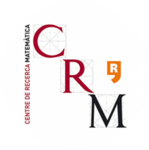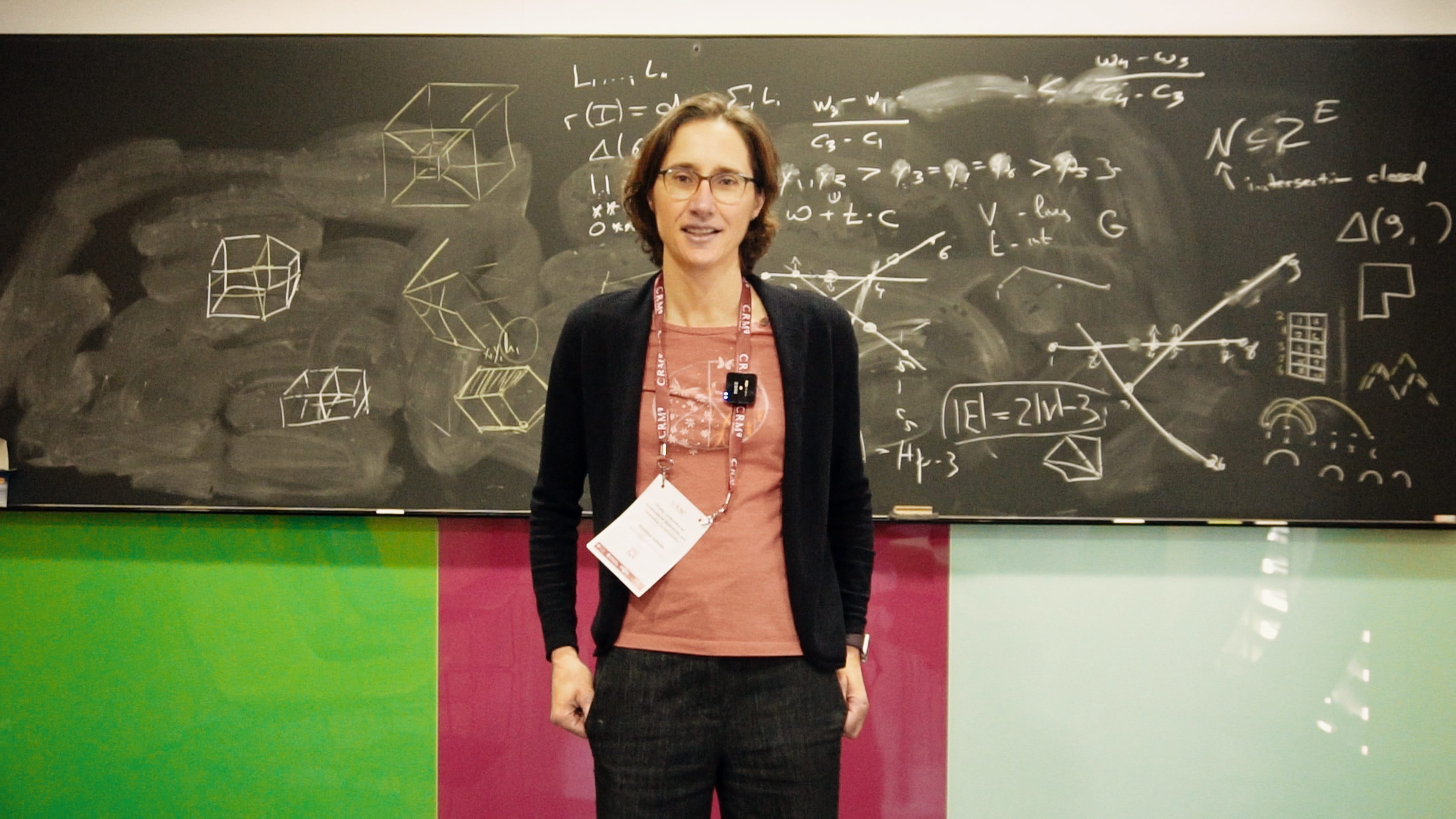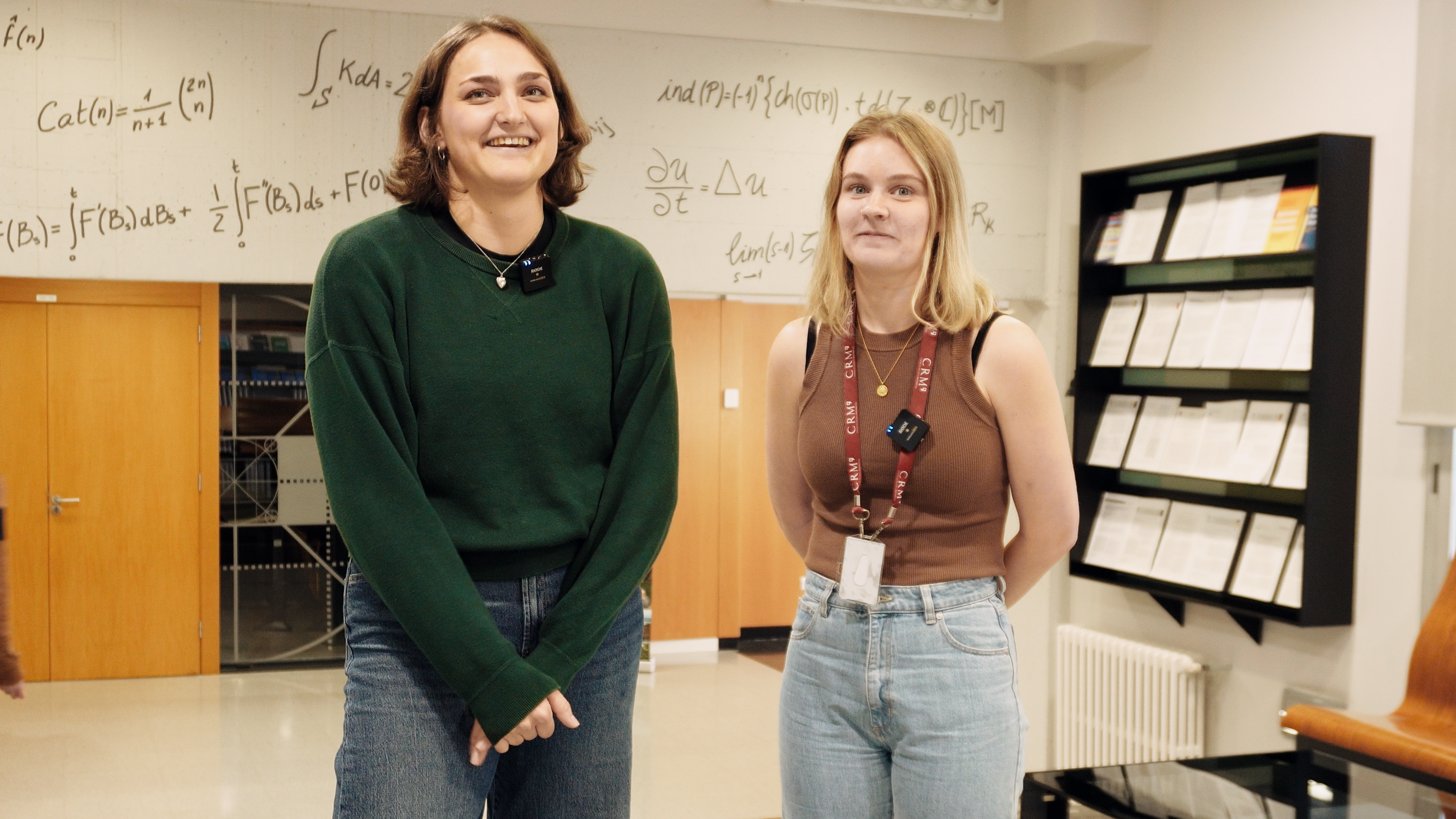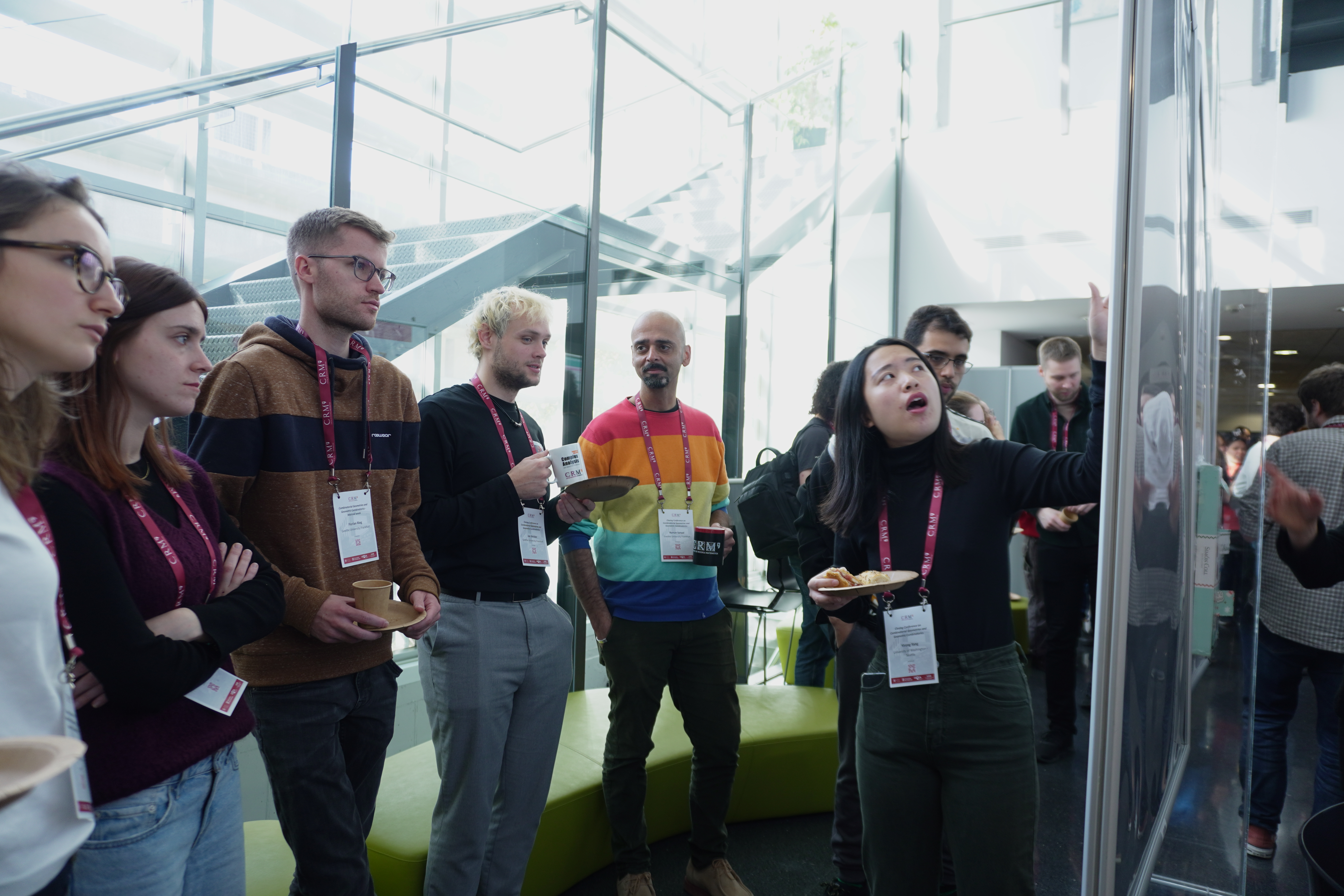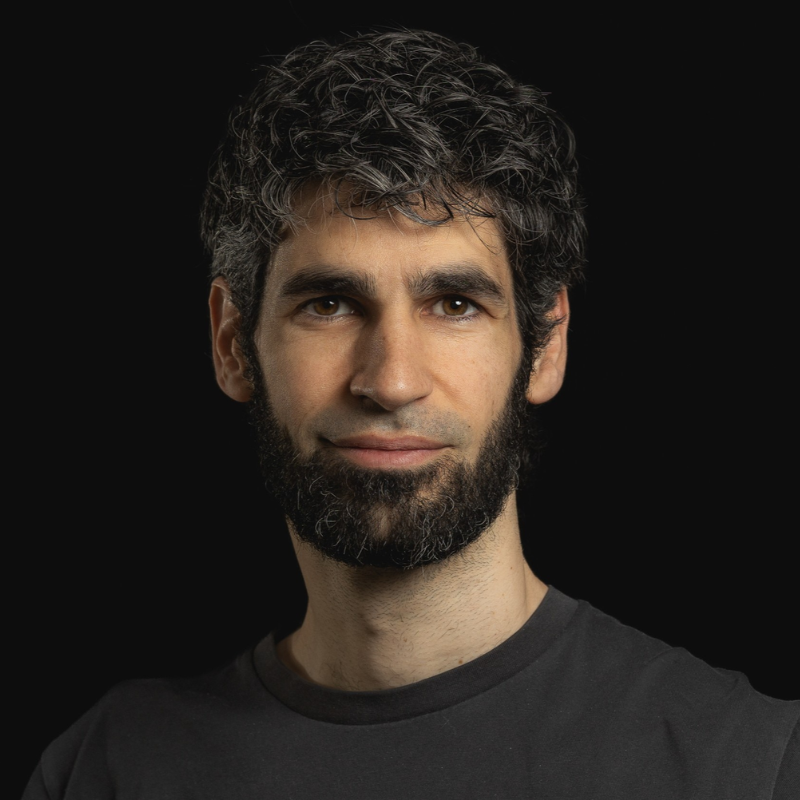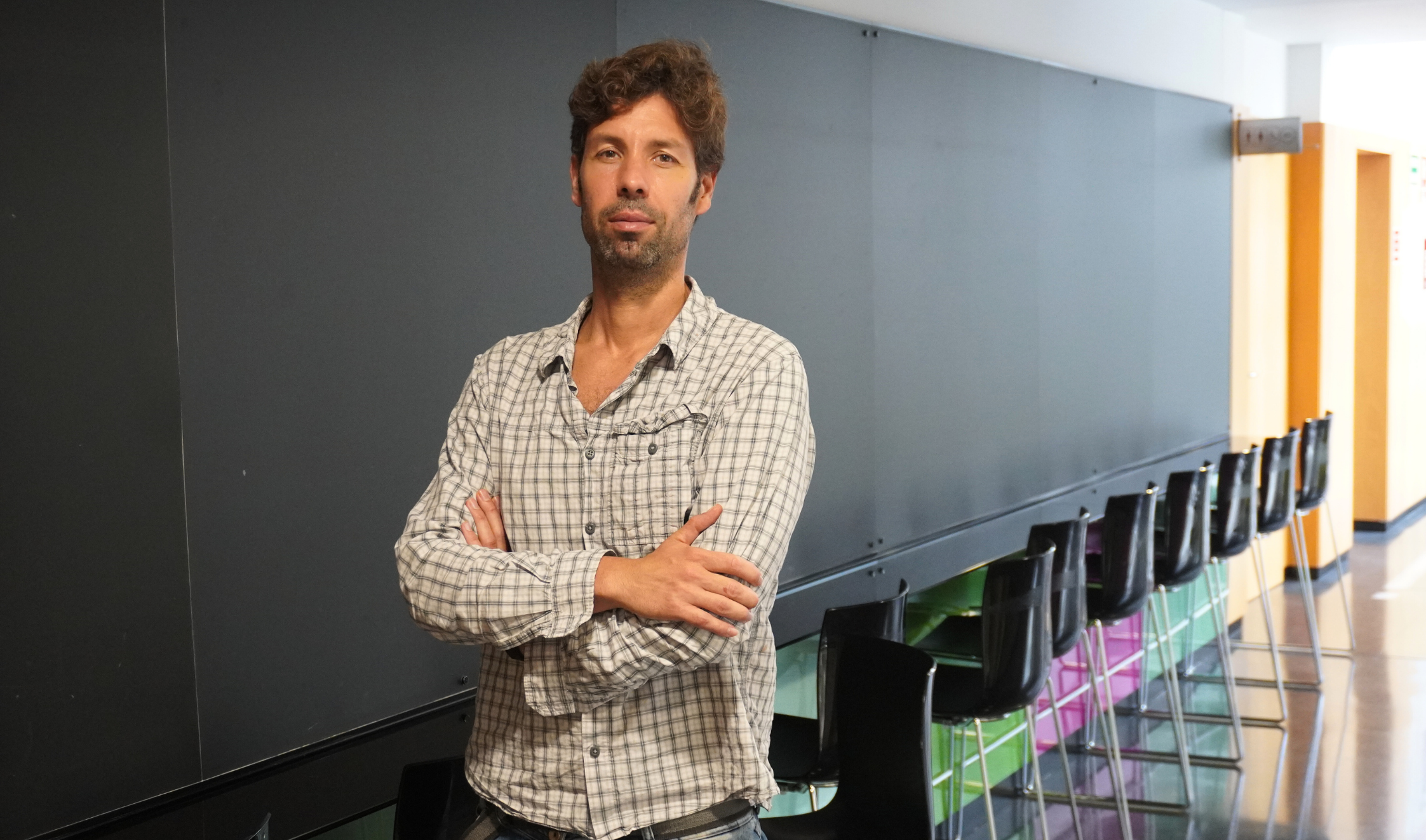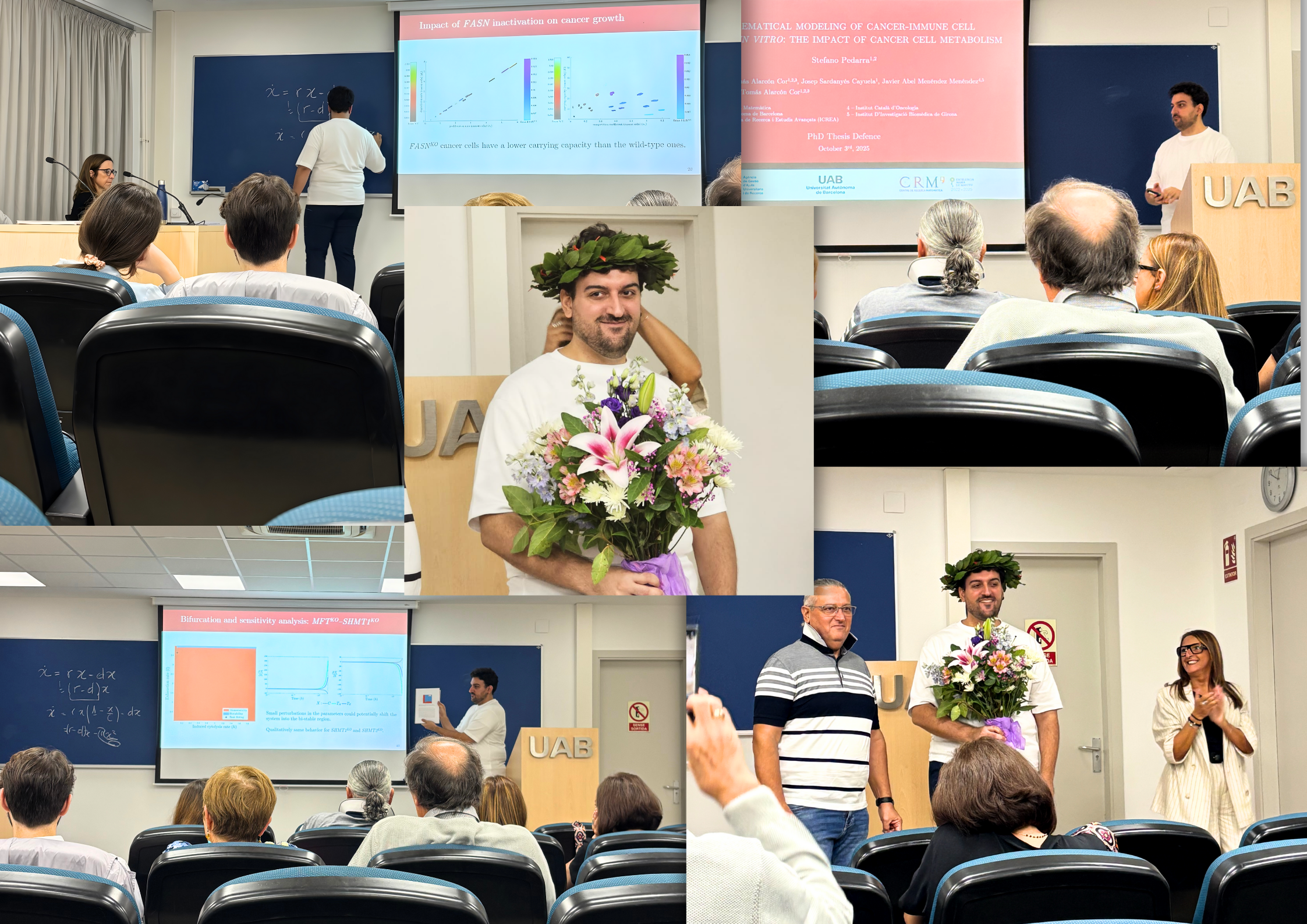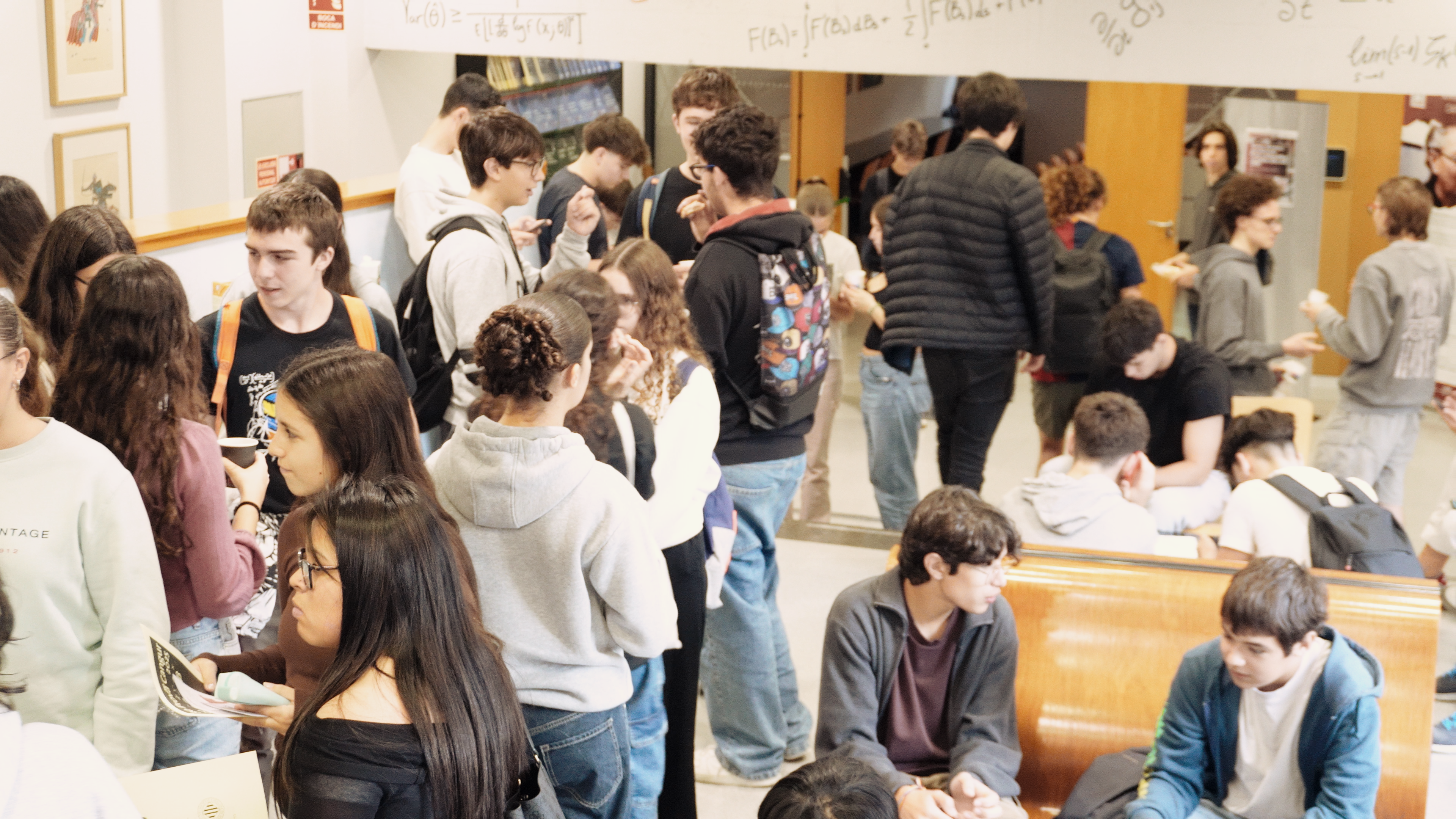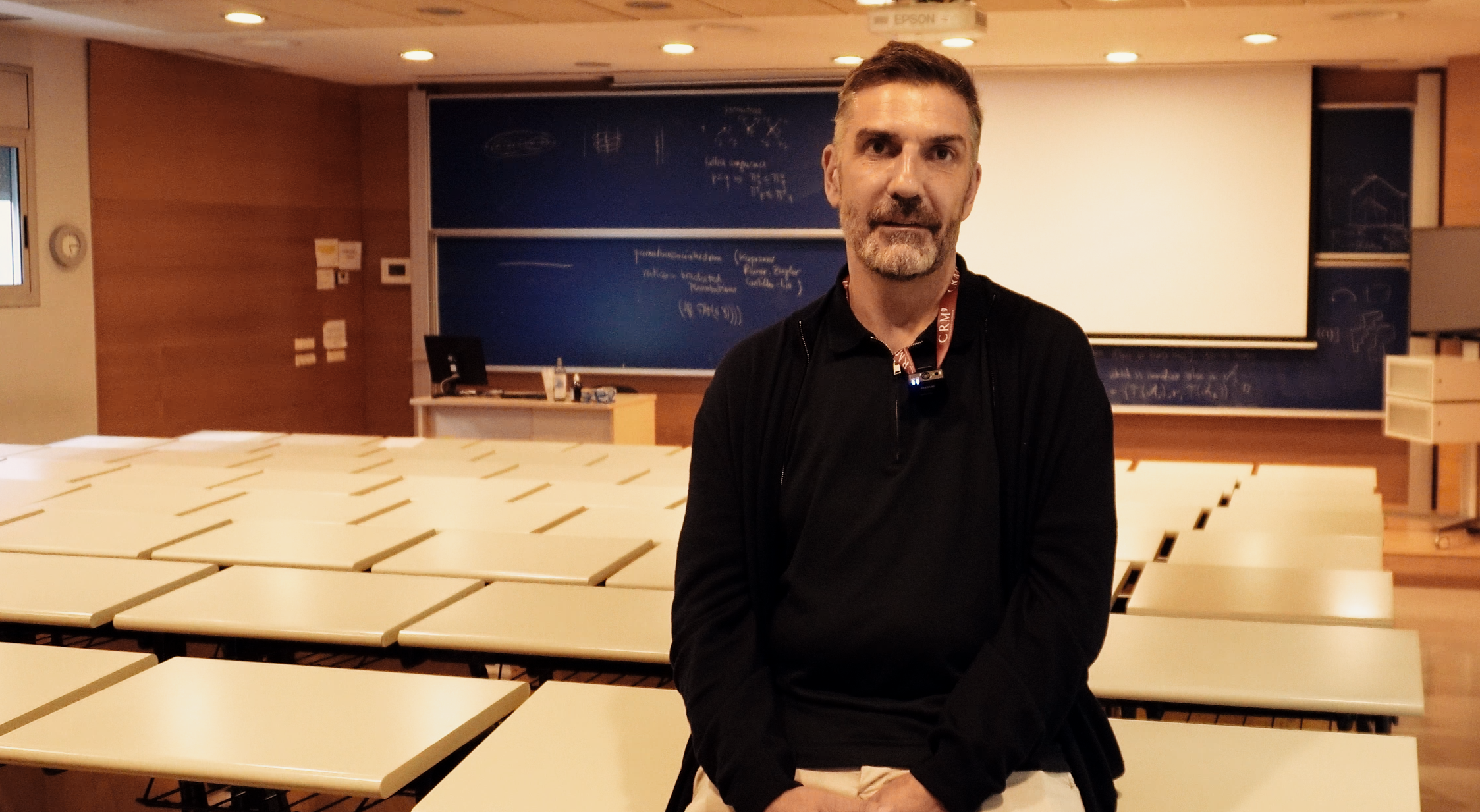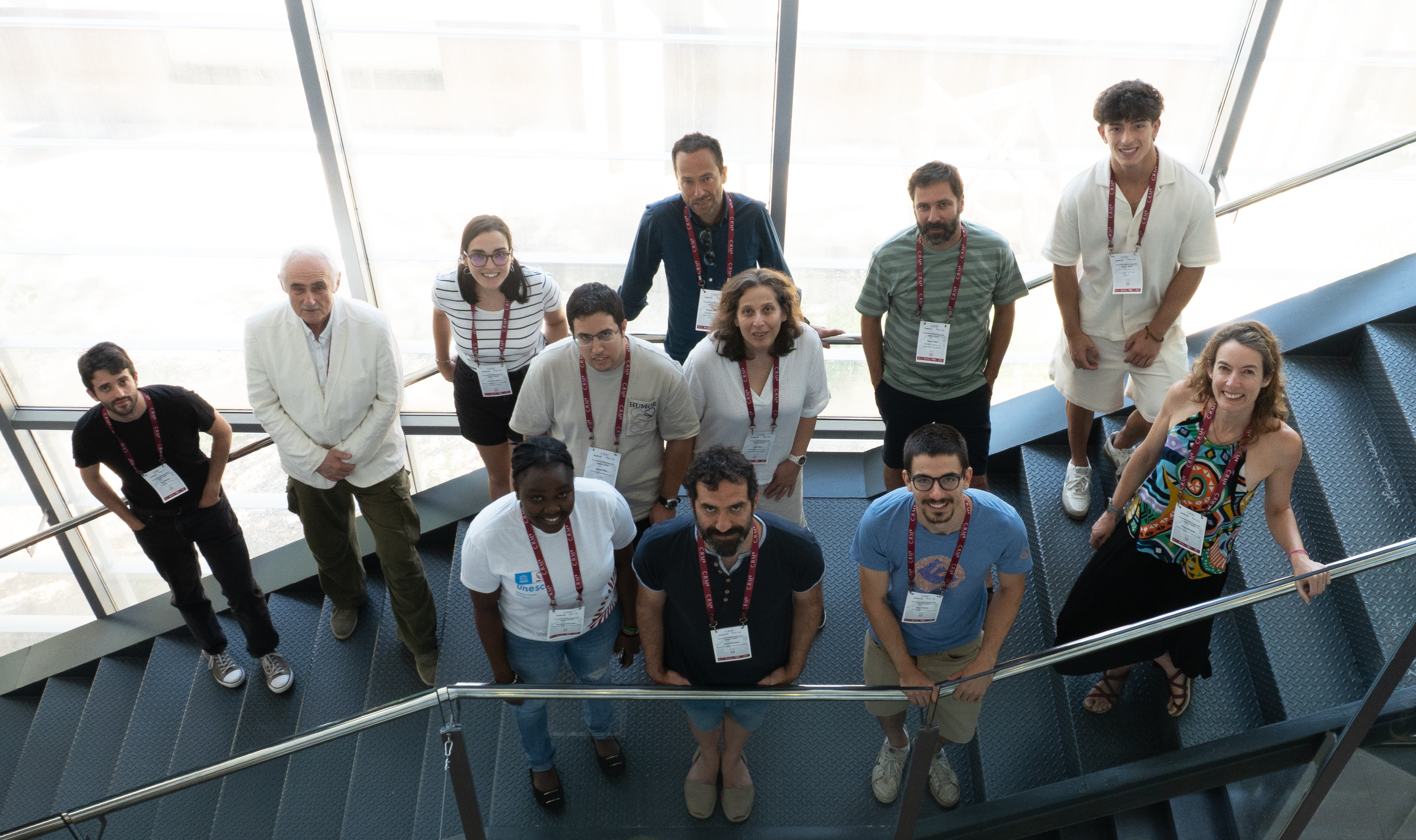
Over the course of five days, ESGI 2025 turned the CRM into a collaborative lab where mathematics tackled questions raised by industry. From safer autonomous driving systems to smart water resource allocation and the financial uncertainties of wind power, participants worked hands-on with real data, constraints, and expectations.
From July 14 to 18, the Centre de Recerca Matemàtica (CRM) hosted the 2025 edition of the European Study Group with Industry (ESGI), a long-standing initiative that connects academic researchers with industry professionals to solve complex real-world problems through applied mathematics. The event, co-organised with Math-In and PT-MATHS-IN, brought together participants from across Europe in a dynamic, collaborative workshop format.
Structured around three industrial challenges proposed by Sener Mobility, Cetaqua, and EDP, the workshop offered a unique opportunity to apply advanced mathematical tools to real, unsolved problems in mobility, resource optimisation, and energy.
Real problems. Real constraints. Real-time solutions.
Sener’s challenge focused on developing a next-generation Advanced Driver Assistance System (ADAS) to support safer overtaking manoeuvres, a functionality still absent in most commercial systems. Teams worked with the open-source CARLA simulator to design and test a prototype ADAS, modelling sensor behaviour and constructing diverse virtual driving scenarios involving weather, traffic, and road degradation. The mathematical demands were high: from probabilistic modelling under uncertainty to optimisation under strict performance constraints like reaction time and accuracy.

Cetaqua, the water research and technology centre, asked participants to optimise the combined use of multiple water sources (groundwater, surface water, desalinated, reclaimed, and network water), each with different costs, flows, and qualities. The goal: to meet specific demands while ensuring output quality and respecting environmental and regulatory constraints. The problem required balancing realism and simplicity in a non-linear system where treatment efficiency depends on source quality.
EDP’s challenge addressed the little-understood area of volumetric risk in renewable energy production. Unlike price risk (which can be hedged through Power Purchase Agreements), energy volume is inherently weather-dependent, making revenue streams unpredictable. Participants explored how to model and mitigate this exposure, especially for wind energy, where traditional financial tools fall short in simultaneously managing both price and volume volatility.

Participants came from a wide range of institutions and countries, including Portugal, Spain, Finland, France, Georgia, Norway, and Italy. Teams were composed of early-career and senior researchers, working side-by-side with industry representatives and academic supervisors throughout the week.
The event was guided by a scientific committee made up of Emilio Carrizosa (Universidad de Sevilla – Math-In), Ricardo Enguiça (Instituto Superior de Engenharia de Lisboa – PT-MATHS-IN), Ana Moura (Polytechnic of Porto – PT-MATHS-IN), and David Romero (CRM). The CRM’s Knowledge Transfer Unit (KTU) coordinated the event on the ground.
ESGI proved that mathematics is more than a theoretical pursuit; it’s a powerful tool for navigating real-world complexity, bridging academia and industry.
Subscribe for more CRM News
|
|
CRM CommPau Varela
|
Fuel Cells, Filtration, and Decades of Collaboration: A Conversation with Brian Wetton
Brian Wetton, from the University of British Columbia, spent last October at CRM collaborating with Tim Myers on computational models for filtration systems. His career has evolved from pure numerical analysis to applied mathematics with industrial partners, working...
From Barcelona to West Bengal: Chemistry Meets Mathematics to Enhance Water Filter Design
Researchers at the Centre de Recerca Matemàtica, in collaboration with IIT Kharagpur and UPC, have developed a mathematical model that accurately predicts the performance of fluoride-removal water filters made of mineral-rich carbon (MRC) and...
Polytopes, Matroids, and the Friends You Make: Martina Juhnke on Two Months at the CRM
The Centre de Recerca Matemàtica recently hosted a research programme on Combinatorial Geometries and Geometric Combinatorics, focusing on the overlap between polytopes and matroids. Martina Juhnke, a member of the scientific committee, reflects on how this programme...
BAMB! 2025: Participants Return to the CRM for Research Stays
In October 2025, the Centre de Recerca Matemàtica hosted Josefine Meyer (ISTA) and Cate MacColl (University of Queensland) for a month-long research stay following their participation in the BAMB! Summer School. Despite studying vastly different subjects, from...
Connecting Shapes, Patterns, and Ideas: the Closing Conference on Combinatorial Geometries and Geometric Combinatorics
During five days, the CRM hosted the Closing Conference of the MDM Focused Research Programme on Combinatorial Geometries & Geometric Combinatorics. The event featured plenary talks, contributed sessions, and posters on topics from matroids and polytopes to...
Xavier Ros-Oton among the 65 most cited mathematicians in the world
ICREA professor at the Universitat de Barcelona and CRM affiliated researcher Xavier Ros-Oton appears on Clarivate's Highly Cited Researchers 2025 list, which this year reinstates the mathematics category after two years of exclusion.Citations are a strange way to...
New Horizons for H- and Γ-convergence: From Local to Nonlocal (and viceversa)
The researchers Maicol Caponi, Alessandro Carbotti, and Alberto Maione extended the H- and Γ-convergence theories to the setting of nonlocal linear operators and their corresponding energies. The authors were able to overcome the limitations of classical localization...
Diego Vidaurre joins the CRM through the ATRAE talent programme
Diego Vidaurre has joined the Centre de Recerca Matemàtica through the ATRAE programme, bringing his expertise in modelling spontaneous brain activity across multiple data modalities. His work focuses on understanding how the brain’s intrinsic dynamics shape...
El CRM a la Setmana de la Ciència: una ruta entre dones, formes i pensament
El CRM va participar en la 30a edició de la Setmana de la Ciència amb una ruta guiada que va combinar les biografies de dones matemàtiques amb obres d'art del centre, connectant ciència, història i creació artística.El 12 de novembre, el Centre de Recerca Matemàtica...
Stefano Pedarra Defends his PhD Thesis on the Interaction between Tumour Cells and the Immune System
Stefano Pedarra has completed his PhD at the Centre de Recerca Matemàtica with a thesis exploring how tumour-cell metabolism shapes the immune system’s ability to fight cancer. His work brought mathematics and biology into direct conversation, from building models to...
Els estudiants participants a la prova de preselecció de Bojos per les Matemàtiques visiten el CRM
La prova de preselecció de Bojos per les Matemàtiques va reunir estudiants de tot Catalunya a la UAB i al CRM, amb presentacions a càrrec de Montse Alsina, presidenta de la Societat Catalana de Matemàtiques, Núria Fagella, degana de la Facultat de Matemàtiques i...
Jordi Mompart highlights the role of artificial intelligence in sport at the XIII GEFENOL-DIFENSC Summer School
The XIII GEFENOL-DIFENSC Summer School gathered over thirty researchers from across Europe to explore how statistical physics helps explain complex phenomena in biology, ecology, networks, and social systems. In his closing lecture, Jordi Mompart (UAB) examined how...

